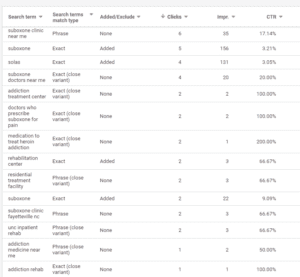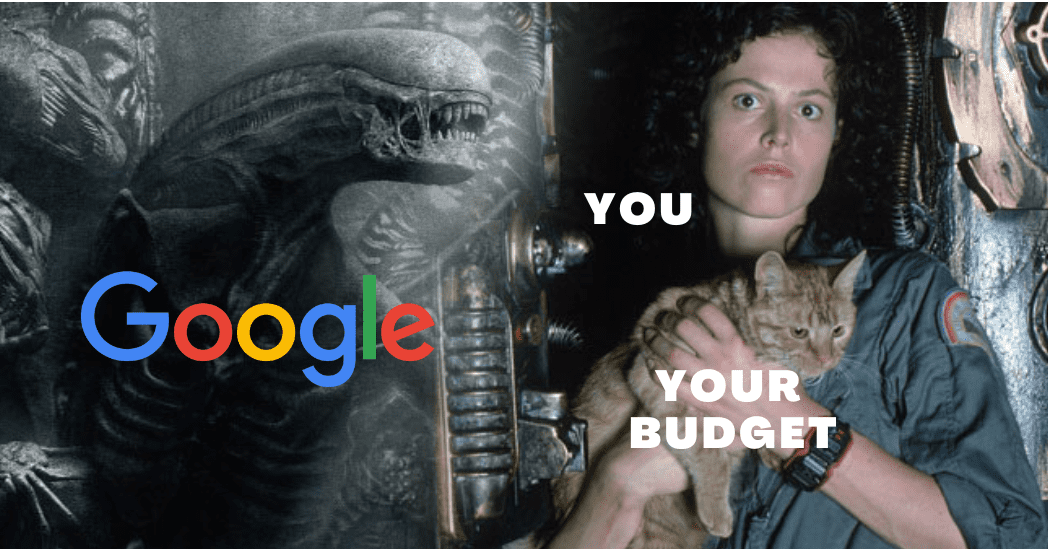No human at Google is paying attention to your Google Ads. Sure, there’s automated messages telling you when a keyword is “limited by medical policy,” and tons of suggestions to “increase your budget,” or “add these keywords,” but it’s all automated.
Will Google Ads notify you if:
- You are spending money to send someone to a broken landing page? Probably not.
- You are wasting budget on keywords that won’t help you (ie “free rehab” or “rehab jobs“)? Certainly not!
Google will make automated suggestions designed to get you to spend more money. They are not looking out for you. Google is the 10th largest company in the world, and their search ads are the main profit center.
Every few months you may hear from a Google Account Specialist who wants to “help you optimize your Google Ads.” Unfortunately, this person is just going to read the list of automated suggestions (to spend more money) and try to walk you through implementing the suggestions. These people are not here to serve you.
It’s Google’s World and We Live in It
What are you going to do? Pivot to Bing? They own 2.4% of the search market (and Google has over 90% of the market share). So, we have to work with Google, but it is the most powerful advertising platform ever created, and it allows you to swoop right in to be seen by your ideal customer at just the perfect moment. But it’s up to you (or your Google Ads agency) to make sure you’re not burning money on Google Ads
What Two Reports Do You Want Your Google Ad Agency to Pull?
To quickly suss out if your Google Ad agency is managing your ads effectively, here’s two reports you can ask for:
- SEARCH TERMS REPORT: Ask them to see the “search terms report” for a recent period. Different than a “keyword report” (which shows your targets that you’re bidding on), the search terms report is easily accessible and will provide you a list of every search term that you spent money to have that user click on your ad, and how much you spent for that click. If you see search terms that you would not want to spend money on, that’s a huge red flag.
- NEGATIVE KEYWORD LIST: The negative keyword list is the collection of terms that will block your ad from being shown. Some simple examples are adding “free” and “jobs” to the negative keyword list. This way if someone is searching for a “free rehab program” or “drug rehab job openings,” you won’t spend your ad budget on that search.

We Are Here to Help Treatment Centers Succeed on Google Ads
Our team has been managing Google Ads for over 15 years, and I personally managed Google Ads for a decade at the largest behavioral health company in the world (CRC/Acadia). Every million dollars spent on Google Ads for this company yielded a million dollars worth of actionable data and testing, and resulted in the ongoing improvement of the Google Ads process. Our team treats your ad budget more carefully than if it was our own budget.
A particular point of pride is our extensive negative keyword list, which has been growing for 15 years, and blocks out irrelevant searches. The result is a pristine “search terms report” that is filled exclusively with strong intention and high conversion terms (see example to the right). Send a form to schedule an appointment so that we can help your treatment center succeed with Google Ads.

